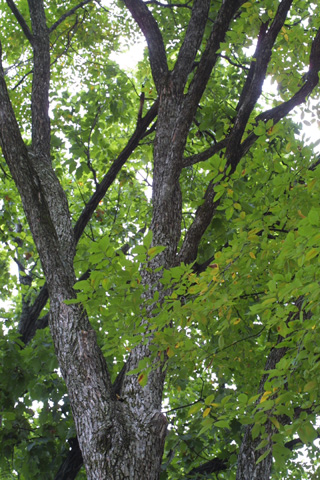
Permanent unique identifier for this particular organism:
http://bioimages.vanderbilt.edu/vanderbilt/12-94

|

|
|
Load database and switch to thumbnail view
Use this stable URL to link to this page:
http://bioimages.vanderbilt.edu/vanderbilt/12-94.htm
This organism is a living specimen that is part of the Vanderbilt University Arboretum with the local identifier 1-654.
This particular organism is believed to have managed means of establishment.
This organismal entity has the scope: multicellular organism.
Identifications:
Ulmus serotina
Sarg.
sec. fna.org 1993
common name: September elm
family: Ulmaceae
Identified 2002-10-01 by Steven J. Baskauf
Location:
Vanderbilt University, Nashville, Davidson County, Tennessee, US
Click on these geocoordinates to load a map showing the location: 36.14302°, -86.79984°
Coordinate uncertainty about: 10 m.
Location of individual determined from GIS database.
Occurrences were recorded for this particular organism on the following dates:
2002-10-01
2003-10-13
2003-10-22
2006-08-16
The following images document this particular organism.
Click on a thumbnail to view the image and its metadata. Load database and enable navigation by taxon and organism.













